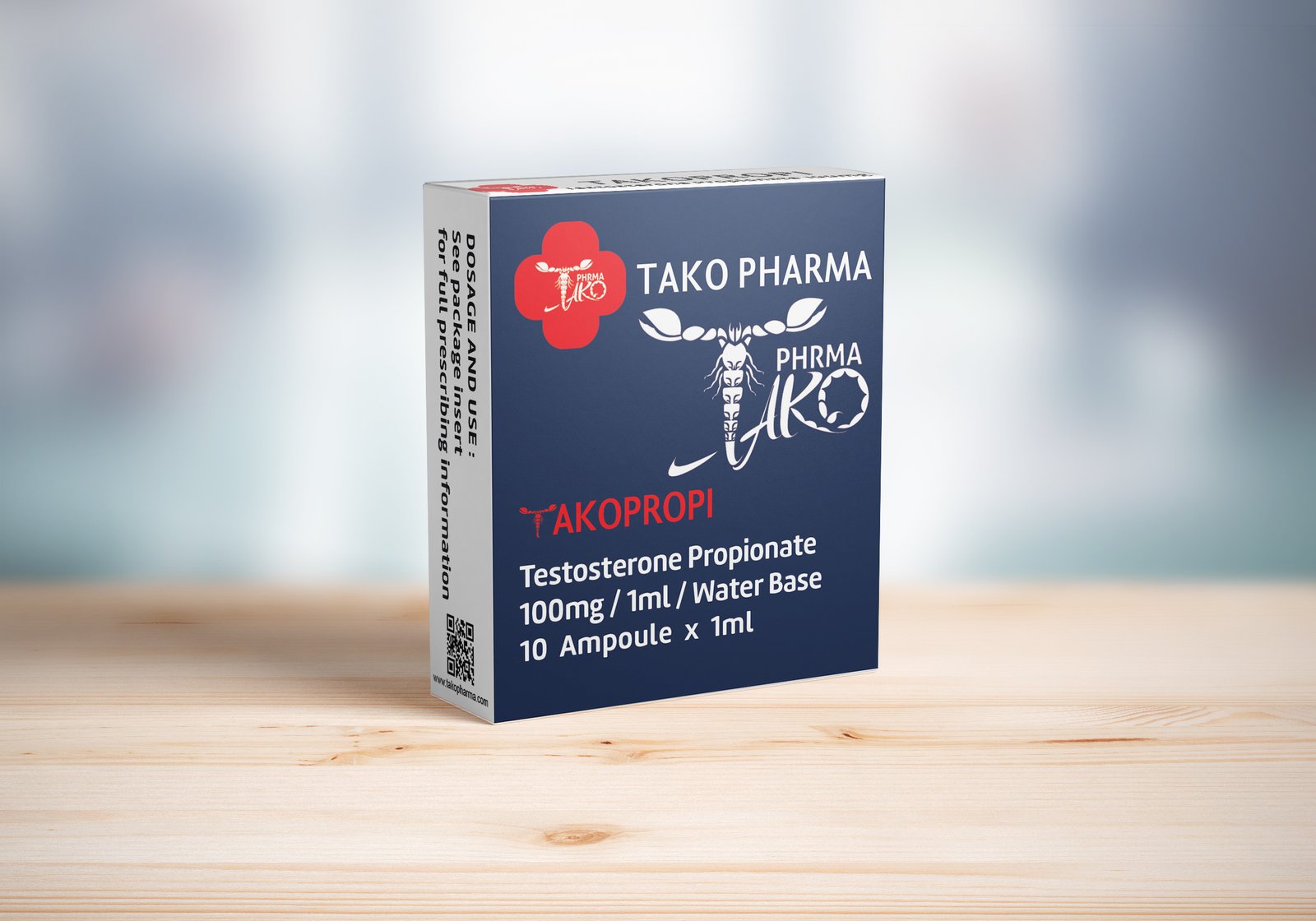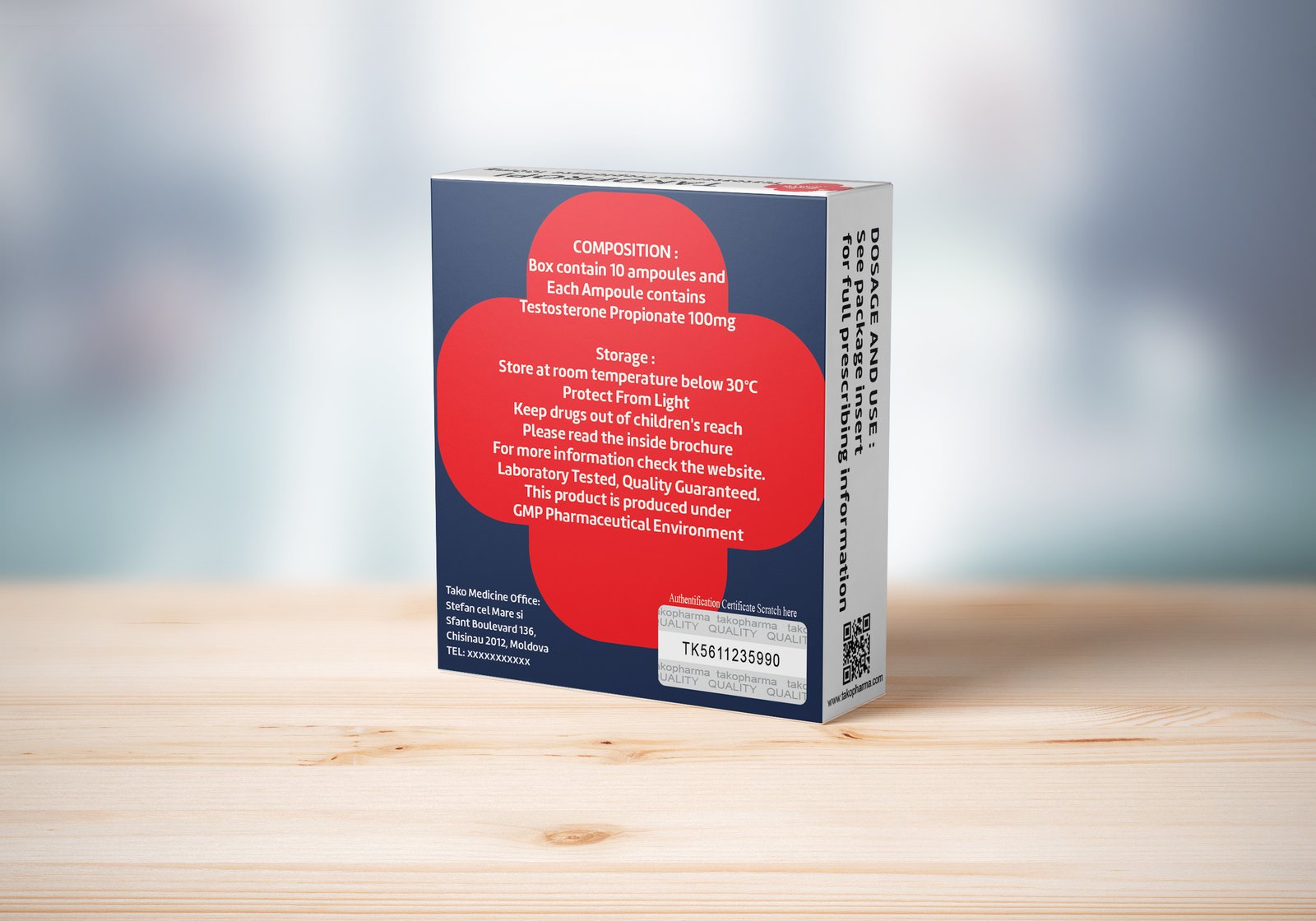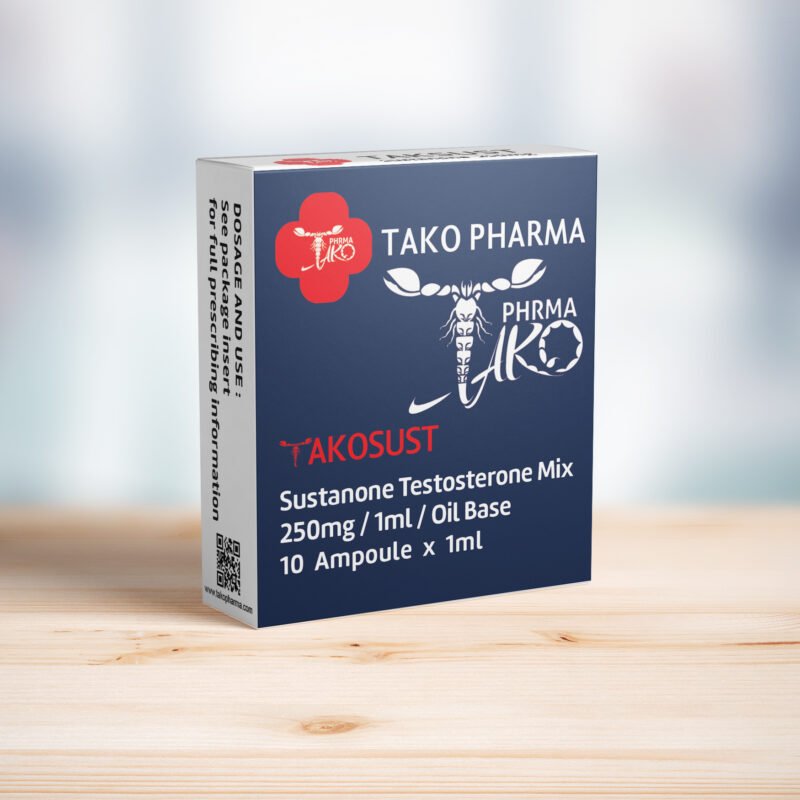
Testosterone Enanthate
June 29, 2024
Trenbolone Acetate
June 29, 2024Testosterone Propionate
Introduction to Testosterone Propionate
Testosterone Propionate is a synthetic form of testosterone, a hormone naturally produced in the human body. Testosterone plays a crucial role in various physiological processes, including the development of male reproductive tissues, muscle mass, and bone density, as well as the maintenance of secondary sexual characteristics. As a synthetic derivative, Testosterone Propionate is engineered to mimic these natural functions, making it a valuable tool in medical treatments and athletic performance enhancement.
In the medical field, Testosterone Propionate is commonly prescribed to treat hypogonadism, a condition characterized by low testosterone levels. This condition can lead to numerous health issues, including decreased libido, fatigue, loss of muscle mass, and mood disturbances. By administering Testosterone Propionate, physicians aim to restore normal testosterone levels, thereby alleviating these symptoms and improving the patient’s overall quality of life.
Apart from its medical applications, Testosterone Propionate has gained significant popularity in bodybuilding and athletic communities. Athletes and bodybuilders often use this compound to enhance muscle growth, strength, and endurance. The fast-acting nature of Testosterone Propionate makes it particularly appealing, as it allows for quicker results compared to other forms of testosterone with longer half-lives. However, it is essential to note that the use of Testosterone Propionate for performance enhancement is often regulated and may be prohibited in professional sports due to its potential for misuse and adverse effects.
Understanding the fundamental aspects of Testosterone Propionate, including its origin, medical uses, and appeal in athletic circles, provides a solid foundation for further exploration into its benefits, appropriate dosing, and potential side effects. This knowledge is crucial for anyone considering the use of this synthetic hormone, whether for medical reasons or athletic enhancement.
How Testosterone Propionate Works
Testosterone Propionate is a synthetic form of testosterone, a crucial hormone in the body primarily responsible for the development of male sexual characteristics. When administered, typically via intramuscular injection, Testosterone Propionate is absorbed slowly into the bloodstream. This mode of administration facilitates a gradual release of the hormone, allowing for more stable blood levels compared to other forms of testosterone.
Upon entering the bloodstream, Testosterone Propionate binds to androgen receptors in various tissues, including muscle cells. This binding initiates a series of cellular processes that promote protein synthesis, leading to muscle growth and increased strength. Moreover, testosterone influences fat distribution by promoting the breakdown of fat cells, thus aiding in body recomposition by reducing fat mass while increasing lean muscle tissue.
Testosterone Propionate also plays a pivotal role in the production of red blood cells. It stimulates erythropoiesis, the process by which new red blood cells are generated. This results in enhanced oxygen-carrying capacity of the blood, which can significantly improve physical performance and endurance. Athletes and bodybuilders often utilize this property to achieve better performance outcomes.
Furthermore, testosterone influences overall physical performance by enhancing neuromuscular function. It increases the size and strength of muscle fibers, improves coordination, and decreases recovery time between workouts. These effects collectively contribute to superior athletic performance and greater exercise capacity.
In summary, Testosterone Propionate exerts its effects through a combination of mechanisms, including promoting muscle growth, altering fat distribution, enhancing red blood cell production, and improving neuromuscular function. These comprehensive effects make it a valuable tool for individuals seeking to enhance their physical performance and overall body composition.
Benefits of Testosterone Propionate
Testosterone Propionate, a widely recognized anabolic steroid, offers numerous benefits, especially for individuals looking to enhance their physical performance and overall well-being. Its primary advantage is in promoting muscle growth. By stimulating protein synthesis, Testosterone Propionate aids in the development of lean muscle mass, making it a valuable asset for bodybuilders and athletes aiming to achieve significant muscle gains.
Additionally, Testosterone Propionate is renowned for its capacity to increase strength. Users often report noticeable improvements in their ability to lift heavier weights and perform more intense workouts. This boost in strength also contributes to enhanced endurance, allowing for longer and more effective training sessions. The combination of increased muscle mass, strength, and endurance can lead to substantial progress in physical fitness goals.
Another critical benefit of Testosterone Propionate is its role in recovery. Strenuous physical activities often result in muscle fatigue and micro-tears. Testosterone Propionate accelerates the repair process of these tissues, reducing recovery time between workouts. Faster recovery means that athletes can train more frequently and at higher intensities, optimizing their performance and progress.
Beyond its physical benefits, Testosterone Propionate also positively impacts mental and emotional well-being. Users frequently experience improved mood and a general sense of well-being. This can be attributed to the hormone’s influence on neurotransmitters in the brain, which play a crucial role in regulating mood and emotions. Moreover, Testosterone Propionate can enhance libido and sexual performance, contributing to a healthier and more satisfying personal life.
Energy levels are another area where Testosterone Propionate proves beneficial. It helps combat fatigue and boosts overall energy, making daily tasks and workouts more manageable. This increase in energy can significantly improve the quality of life for users, helping them feel more vibrant and active.
Recommended Dosage and Administration
Testosterone propionate, a fast-acting ester of testosterone, is utilized in various contexts, ranging from medical treatments to bodybuilding. Its dosage and administration depend significantly on the intended purpose, individual needs, and professional guidance.
For medical treatment, testosterone propionate is typically prescribed to address conditions such as hypogonadism in males. The suggested dosage for therapeutic purposes often ranges between 25 to 50 mg administered two to three times per week. Healthcare professionals may adjust the dosage based on the patient’s response, monitoring hormone levels and adjusting as necessary to achieve optimal therapeutic outcomes.
In the realm of bodybuilding, testosterone propionate is frequently used to enhance muscle mass and strength. Bodybuilders usually employ higher dosages compared to medical treatments. A common dosage range is between 100 to 200 mg administered every other day. Such a regimen helps maintain stable blood levels of testosterone, which is crucial for achieving desired anabolic effects. However, it is essential to note that the increased dosages and frequency come with a higher risk of side effects and potential health complications.
The administration schedule of testosterone propionate is characterized by its short half-life, necessitating more frequent injections compared to other testosterone esters. Typically, users administer the compound intramuscularly every other day or three times a week to maintain consistent blood levels. The cycle duration for bodybuilding purposes often spans from 6 to 12 weeks, depending on individual goals and tolerance.
Adjusting doses based on individual response is vital. Factors such as age, weight, overall health, and specific goals influence the optimal dosage. Consulting with a healthcare professional before starting testosterone propionate is paramount to ensure safe and effective usage. Regular monitoring and adjusting the dosage under medical supervision help mitigate potential risks and optimize the benefits of testosterone propionate administration.
Potential Side Effects and Risks
Testosterone propionate, while offering numerous benefits, is not without its potential side effects and risks. Both short-term and long-term reactions can occur, ranging from mild to severe. It is crucial for users to be aware of these to monitor and manage any adverse effects effectively.
In the short-term, users may experience mild side effects such as acne and hair loss. Acne can result from increased oil production in the skin, a common consequence of elevated testosterone levels. Hair loss, particularly in individuals predisposed to male pattern baldness, can also be triggered by testosterone propionate.
Mood swings are another notable side effect. Testosterone has a significant impact on mood regulation, and fluctuations in hormone levels can lead to irritability, aggression, or even depressive episodes. These mood changes can affect daily life and relationships, underscoring the importance of psychological monitoring during hormone therapy.
More severe reactions can include liver damage and cardiovascular problems. Prolonged use of testosterone propionate has been linked to liver issues, such as hepatotoxicity, which can lead to liver dysfunction or disease. Cardiovascular risks include increased blood pressure and alterations in cholesterol levels, potentially escalating the risk of heart attack or stroke. These serious health concerns necessitate regular medical evaluations and blood tests to ensure timely detection and intervention.
Furthermore, testosterone propionate can cause changes in red blood cell count, leading to polycythemia, a condition characterized by an increased number of red blood cells. This can thicken the blood, increasing the risk of clotting complications. Monitoring hematocrit levels is essential to mitigate this risk.
Given the spectrum of potential side effects and risks associated with testosterone propionate, comprehensive monitoring and management are paramount. Regular consultations with healthcare professionals, routine blood tests, and a vigilant approach to any emerging symptoms can help mitigate these risks and ensure safer usage of this hormone therapy.
Testosterone Propionate vs. Other Forms of Testosterone
Testosterone propionate is often compared with other forms of testosterone, such as testosterone enanthate and testosterone cypionate, due to their varying characteristics and applications. One of the primary differences lies in their chemical structure and ester length, which directly affects their half-life and frequency of administration.
Testosterone propionate possesses a shorter ester chain compared to enanthate and cypionate. This shorter ester results in a quicker release into the bloodstream, necessitating more frequent injections, typically every other day. In contrast, testosterone enanthate and testosterone cypionate have longer ester chains, leading to a slower release and thus, allowing for less frequent administrations, usually once every week or two.
When it comes to half-life, testosterone propionate has a half-life of approximately 4.5 days, requiring more diligent dosing schedules to maintain stable blood levels. On the other hand, testosterone enanthate and cypionate boast half-lives of about 8-10 days and 12 days, respectively, making them more convenient for users who prefer fewer injections.
The choice between these forms of testosterone often hinges on individual goals and preferences. For individuals seeking rapid results or those involved in short-duration cycles, testosterone propionate might be the preferred option due to its fast-acting nature. However, the need for frequent injections can be a drawback for some, making testosterone enanthate or cypionate more appealing due to their extended dosing intervals.
Furthermore, the overall efficacy of these testosterone forms is quite similar, as they all ultimately deliver the same hormone into the body. The primary consideration is the balance between convenience and the desired speed of results. Therefore, users with specific needs, such as those managing particular medical conditions or pursuing competitive bodybuilding, might favor one form over another based on these unique requirements.
Legal and Ethical Considerations
The legal status of testosterone propionate varies significantly across different countries, reflecting diverse regulatory frameworks and societal attitudes toward performance-enhancing drugs. In many regions, testosterone propionate is classified as a controlled substance due to its potential for misuse and health risks. For instance, in the United States, the Drug Enforcement Administration (DEA) categorizes anabolic steroids, including testosterone propionate, as Schedule III controlled substances. This classification necessitates a prescription for legal possession and use, primarily for treating conditions like hypogonadism.
In contrast, some countries have more lenient regulations. For example, in certain parts of Europe, testosterone propionate can be obtained with a prescription, though the oversight and enforcement of these regulations can vary. It is crucial for individuals to familiarize themselves with their local laws to avoid legal repercussions. Unauthorized use, distribution, or possession of testosterone propionate can lead to significant legal penalties, including fines and imprisonment.
Within the realm of sports and bodybuilding, the use of testosterone propionate is heavily regulated by organizations such as the World Anti-Doping Agency (WADA). WADA’s Prohibited List includes all anabolic agents, making the use of testosterone propionate without a therapeutic use exemption (TUE) a violation. Athletes caught using this substance face sanctions ranging from suspensions to lifetime bans, depending on the severity and context of the violation.
Ethically, the use of testosterone propionate and other performance-enhancing drugs raises substantial concerns. The primary ethical issue is the unfair advantage these substances provide, undermining the integrity of competitive sports. Furthermore, the health risks associated with misuse—such as cardiovascular issues, liver damage, and hormonal imbalances—pose significant moral considerations. The potential for addiction and the psychological impact of dependency also contribute to the ethical debate.
In conclusion, understanding the legal and ethical considerations surrounding testosterone propionate is essential for anyone contemplating its use. Adhering to legal requirements and recognizing the ethical implications can help mitigate the risks associated with this powerful anabolic steroid.
Conclusion and Final Thoughts
In our exploration of testosterone propionate, we have delved into its various benefits, appropriate dosages, and potential side effects. This synthetic anabolic steroid can significantly aid in muscle growth, strength enhancement, and overall physical performance when used correctly. However, it’s imperative to understand that these advantages come with inherent risks. Misuse or overuse of testosterone propionate can lead to a range of adverse effects, from mild symptoms such as acne and hair loss to more severe health issues like cardiovascular problems and liver toxicity.
Given the complex nature of hormone therapy, it is crucial for individuals to consult with healthcare professionals before embarking on any treatment regimen. A medical expert can provide personalized advice, considering one’s unique health profile and ensuring the safe and effective use of testosterone propionate. Additionally, the legal and ethical implications of using performance-enhancing substances should not be overlooked. It’s important to adhere to the laws and regulations governing anabolic steroids in your region and to consider the moral aspects of their use, especially in competitive sports.
Ultimately, understanding the full spectrum of testosterone propionate’s effects is essential for making informed decisions. By weighing the benefits against the potential risks and seeking professional guidance, individuals can navigate the complexities of hormone therapy responsibly and ethically.







Reviews
There are no reviews yet.